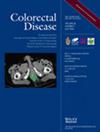What influences emergency general surgeons' treatment preferences for patients requiring nutritional support? A discrete choice experiment
Abstract
Aim
Identifying and managing malnourished emergency general surgery (EGS) patients can be difficult. There are many tools available, a range of barriers to overcome and variety of guidelines at a surgeon's disposal. This study aimed to determine the impact of key variables on surgeon preference to start nutritional support in EGS.
Methods
A discrete choice experiment was used to determine the impact of six variables on surgeons' treatment preferences for commencing nutritional support in EGS. Twenty-five hypothetical scenarios regarding a patient with adhesional small bowel obstruction were disseminated electronically. Binomial logistic regression was used to identify significant associations. Ethical approval was obtained (UREC 050436).
Results
In all, 148 participants responded providing 3700 scenario responses. Completion rate was 52.1% (148/284) with an approximately even split of consultants and non-consultants (50.7% vs. 49.3%) and intestinal failure (IF) experience (46.6% experienced vs. 53.4% not experienced). Consultants favoured starting nutritional support (77.7%; 1443/1875) more often than non-consultants (71.8%; 1310/1825). Forming an anastomosis, hypoalbuminaemia, underweight (body mass index <18.5 kg/m2), unintentional weight loss (>10%), ≥5 days without oral intake until now and ≥5 days likely to be without oral intake from now were statistically more likely to be associated with treatment preference, but obesity (body mass index >30 kg/m2) was not. Overall, experience of IF (OR 1.093, 95% CI 0.732–1.631; P = 0.663) and seniority of surgeon (OR 0.711, 95% CI 0.473–1.068; P = 0.100) significantly influenced the results.
Conclusions
There are many variables that impact the decision to start nutritional support in EGS, but seniority of the surgeon and IF experience do not.


 求助内容:
求助内容: 应助结果提醒方式:
应助结果提醒方式:


